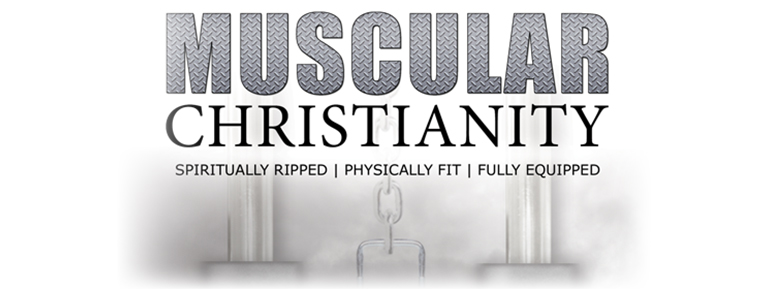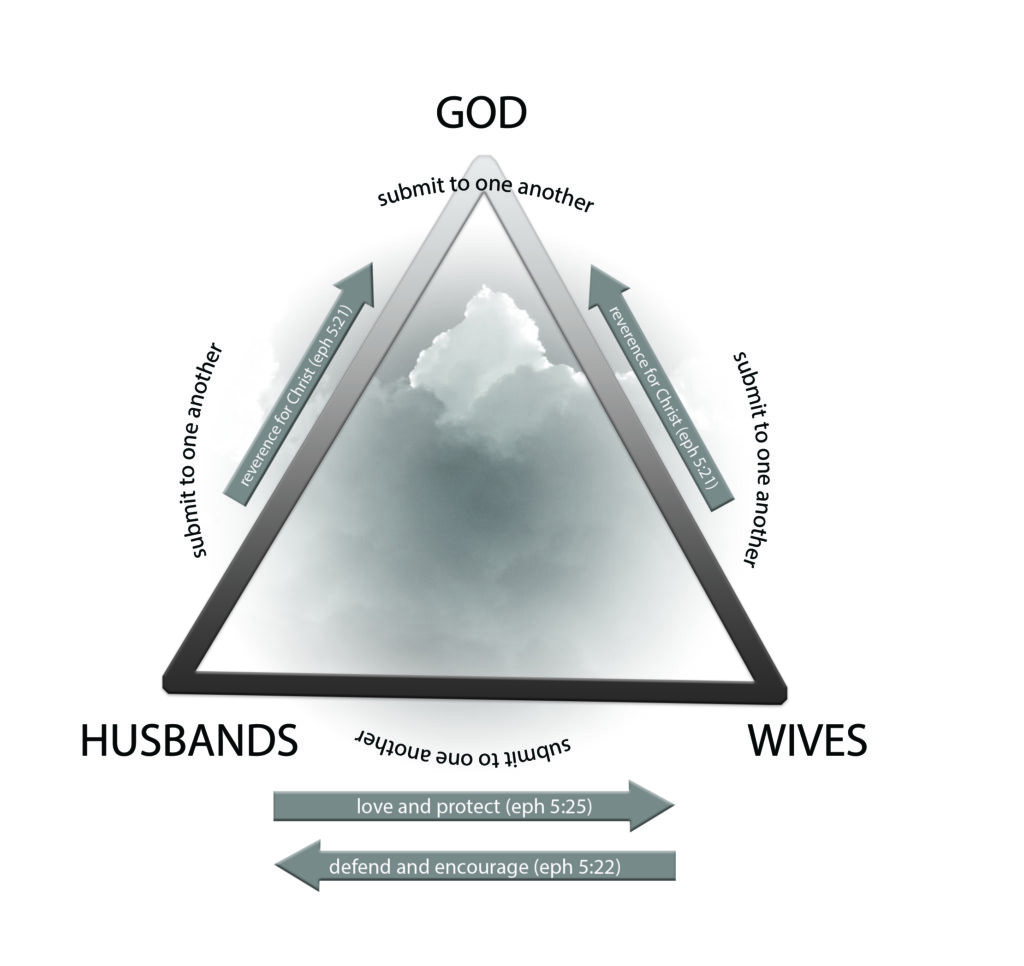That’s Your Opinion | Part II

This is part two of “That’s Your Opinion.” In the first installment, we looked at the way in which the phrase, “That’s your opinion,” is often used as a strategy to prevent anyone from disagreeing with what’s being said by asserting the idea that all opinions have to be certified as valid in order to ensure an environment characterized by compassion and understanding. This is how bad ideas become culturally accepted methodologies. By posing as a victim of an overbearing and intolerant society, one’s viewpoint is embraced as comparable to every other mindset, regardless of what occurs when that perspective is put into practice.
It’s not a statement as much as it’s a strategy to conceal the problems associated with a particular approach.
To prevent this tactic from shutting down what would otherwise be a productive dialogue, you want to navigate the conversation using the techniques used by Christ.
In Part II, we’re going to recap what was discussed in Part I, emphasize the spiritual realities that characterize this contest and that look at some real world examples.
Here we go!
I) Intro: The Dilemma and the Diversion
As someone who subscribes to a perspective on a particular issue that when put into practice results in a world of pain and problems, you now have a dilemma…
You can’t defend your rationale directly, so you create a distraction by posing as an advocate for an open forum where everyone has the right to think for themselves.
This is what is happening when you hear someone say, “That’s your opinion.”
“That’s your opinion” creates a diversion in that you’re now no longer talking about the subject matter. The shortcomings that are inherent to your platform, which stand to be revealed in the context of a legitimate conversation, are overlooked in favor of what appears to be a noble defense of free thinking.
You’re no longer seen as someone attempting to justify your point of view. Now you’re perceived as someone who simply wants everyone to be heard and, because no one can logically challenge that idea, both you and your platform are embraced in the name of diversity and equality.
Meanwhile…
All the problems caused by the way you manage your thoughts and morals are processed, not as those things that are directly related to the flawed perspectives you insist on maintaining, but as pain inflicted upon you by an intolerant society, if they’re perceived as problems at all.
And while saying, “That’s your opinion” is an effective strategy in preventing an incriminating line of questioning from ever being included as part of the debate, it’s one of several phrases that have the same effect:
- Not everyone feels that way.
- You can’t force your beliefs on me.
- Separation of church and state.
With each phrase you have the ability to conceal the flaws of your platform by framing it as an appeal for compassion and understanding.
It’s a brilliant strategy and one that can be identified as having played a crucial role in adding any one of a number of dysfunctional standards to the list of culturally accepted methodologies.
The best way to counter these tactics is to follow the example of Christ in the way He engaged His opponents and that’s what we’re talking about tonite.
II) It’s Not Against Flesh and Blood
Before we get started, let’s ensure we’re beginning with a biblical starting point:
Ephesians 6:12 says:
For our struggle is not against flesh and blood, but against the rulers, against the authorities, against the powers of this dark world and against the spiritual forces of evil in the heavenly realms. (Eph 6:12)
Our struggle isn’t against flesh and blood…
The topics that we discuss in today’s society and the Truths that we would champion are more than just talking points. There’s a spiritual struggle baked into these debates that prevent an objective evaluation of the facts and however strong and compelling your logic may be, it will be labeled as flawed and even cruel because of the way the human race wants to see itself as its own absolute.
This is part of what Paul is addressing in the verse we just read.
The underlying question is, “Who’s in charge?” If Christ isn’t your starting point, the individual is basically running the show and anybody who disagrees with them is seen as someone who is challenging their authority and not merely questioning their logic.
This is why in order for real change to occur, you have to step back and allow God to do what only He can accomplish (Jn 6:65; 1 Cor 2:12).
The point of this discussion is not to suggest that a particular debating technique can be used as a supplement to Evangelism or to take away from the sense of urgency that accompanies God’s command to be an effective witness (Matt 28:19-20; Eph 5:15-16).
Rather, what we’re looking at are the spiritual realities that are at play and recognizing the tactics that are often used to shut down a conversation before it can get to a place where the Truth of God’s Word can be presented as Something that is both Strong and Superior to any competing school of thought (Is 1:18; Jn 17:17; 1 Cor 1:18).
The takeaway here is not a replacement for Evangelism, as much as it’s a method you can use to circumvent those strategies that are looking to prevent it.
That said, let’s take a look at how human beings tend to defend themselves when confronted with a Truth they don’t want to hear…
III) The Strategy of the Victim
- When Adam was asked by God why he ate the forbidden fruit, he blamed Eve (Gen 3:12)
- When Eve was asked why she ate from the Tree of the Knowledge of Good and Evil, she blamed the serpent (Gen 3:13)
- When Cain was asked where his brother was, he responded by insinuating it wasn’t his responsibility (Gen 4:9)
- When Moses confronted Aaron about his willingness to create a golden calf, Aaron blamed his fellow Israelites (Ex 32:22-23)
- When Samuel accused Saul of disobeying the Lord’s commands, Saul blamed his soldiers for pressuring him to compromise (1 Sam 15:24)
- When Peter was identified as someone who knew Jesus, Peter insisted he was a victim of mistaken identity (Lk 22:54-62)
It’s typical for someone who has something to hide, as opposed to having something to say, to pose as a victim of extenuating circumstances and in that way, either justify their actions or conceal the self-absorbed agenda that motivates their behavior.
When you say, “That’s your opinion,” you’re asserting that all opinions need to be certified as valid in order to ensure a fair and equitable environment. Now, should anyone question the substance of your opinion, they are heard as being antagonistic to the idea of a person having the right to think for themselves.
To disagree with you in any way shape or form is now associated with an attitude that is unfair and unjust.
And you are now a “victim…”
The focus is now on rescuing you from the clutches of a totalitarian system and the fact that you’re driving on the wrong side of the road and justifying by saying you have the right to be happy is either overlooked or embraced as part of ensuring a proper degree of sensitivity is being applied to the wounds you have received at the hands of a tyrannical paradigm.
These aren’t topics, these are tactics. These aren’t subjects, these are strategies.
The validity of one’s perspective is ultimately gauged according to what occurs when that perspective is put into practice. If the result is fundamentally flawed, then not only is your opinion invalid, but it needs to be subordinated to a mindset that yields a better outcome.
But however logical that approach may be, it is anything but reasonable to a person who’s philosophically invested in their fallacy, which is why they will cling to a victimized status in order to avoid having to defend a mindset that cannot be validated as interchangeable, let alone preferable to those dispositions that produce a better result.
IV) Disable and Dismantle
When confronted with the “That’s your opinion” tactic, you don’t want to think of merely “countering” or “blocking.”
When you look at the way God handled all of the previously mentioned scenarios, you see the same technique happening over and over again.
- Adam and Eve (Gen 3:13) – What have you done?
- Cain (Gen 4:10) – What have you done?
- Moses and Aaron (Ex 32:25-27) – Whose side are you on?
- Samuel and Saul (1 Sam 15:21) – What does God prefer?
- Peter and Jesus (Jn 13:38) – Will you really?
However the situation appears to obligate God to acknowledge the compromised status of those He is confronting, He maintains the true purpose of the conversation by simply asking a question.
Each question compels a response that does not allow for anything other than a direct answer. Whatever tactics or strategies that might otherwise be deployed in order to reduce visibility, so the consequences of their actions go unseen are effectively disabled and dismantled.
Jesus used this same kind of approach when talking with the Pharisees.
When they attempted to trap Him into saying something incriminating by asking if it was lawful to pay taxes to Caesar, He replied by asking “Whose image is this? And whose inscription?” (Matt 22:20).
When the Pharisees were convinced the Christ as committing blasphemy by telling a man that his sins were forgiven, He responded by asking, “Which is easier: to say, ‘Your sins are forgiven,’ or to say ‘Get up and walk’?” (Matt 9:5).
Questions have to be answered in a way that resonates as complete and coherent. You risk your entire platform by coming across as evasive and manufactured.
And because a perspective lacking in practical substance can’t hold up beneath the weight of a revealing inquiry, you’re able to completely circumvent what would otherwise happen to the conversation when your opponent says, “That’s your opinion.”
V) Examples
There are any one of a number of issues in our society today that are labeled, “controversial” that remain in that category only because of the way they’re camouflaged as opinions that need to be adopted as part of maintaining an impartial marketplace of ideas.
It is possible, however, to uncover the troubled and sinister dynamics that characterize these topics by being like Christ and asking the right questions.
Bear in mind, though, that even when you’re able to bring certain things to light that might otherwise go unnoticed, the real battle is spiritual, and you want to remain sensitive and obedient to however God would work through you in order to ensure that it’s Him that is being clearly seen and not just a more well thought out worldview (Matt 10:19).
Below you’ll see some examples of how a particular approach to an issue can be revealed as being inconsistent with what’s both logical and True by asking the right question(s).
Use these examples to inspire your own rebuttals remembering that the battle is the Lord’s and your Strength comes from Him.
The negative health consequences of alternative sexuality are made more understandable by first recognizing the nature of the sexual practices at issue. A 1979 survey in the book The Gay Report revealed the percentage of gay men who engaged in the following practices: 99% oral sex, 91% anal sex, 82% rimming (analingus), 22% fisting, 23% golden showers (urination on another), 4% scat (defecation on another). 8 The book’s two authors were of same-sex sexual attraction. A May 2011 medical journal article found that felching (“sucking or eating semen out of someone’s anus”) was a sought-after practice in one-sixth of men’s profiles in “one of the largest Internet websites specifically targeting MSM looking for partners for unprotected sex.” (cmda.org)
Homosexuality
Is Homosexuality the best way to contract and proliferate the AIDS virus?
As of 2021, there are 32,100 estimated new HIV Infections. Of those, 70% were among gay and bisexual men.1
Homosexuality is engaged according to a collection of sexual practices that represent a breeding ground for all kinds of sexually transmitted diseases. In short, it represents a departure from the way the human species is designed. (Lev 18:22; 20:13; Rom 1:26-27)
Abortion
Will your baby live if you don’t have an abortion?
The argument that “It’s my body,” ceases to be a legitimate perspective once you realize that your baby is another human being and not a mere skin tag that can be disposed of. (Gen 1:26; Ex 20:13; Ps 139:13-16)
Socialism
Does everyone deserve a passing grade on a test – even those that didn’t study?
Not everyone has the same work ethic and, in that regard, Socialism doesn’t work because it fails to acknowledge the reality of fools. (2 Thess 3:10)
Christian theology with its idea of a fixed human nature infuriated Marx, who was not just an atheist but a God-hater who denounced religion as “the opium of the people.” His disciples, led by Lenin, always targeted the churches when they came to power. They initiated without apology a campaign of terror, shutting down churches, executing priests and bishops and violating nuns. The horrors were justified as part of the class-cleansing Marx envisioned.
The Founders of the American Revolution rejected those who believed that man was born without any imprint and sided with those who accepted that man was born in the image of God. As the Declaration of Independence states, all men “are endowed by their Creator with certain unalienable rights.” The Founders disagreed with those who thought man was perfectible and instead took the Christian position that man’s nature was fallen.2
VI) Conclusion
Similar to “turning the other cheek,” 1 Peter 3:14-15 needs to be processed as something more than just being able to tell someone that they’re a sinner and they need Jesus:
But in your hearts revere Christ as Lord. Always be prepared to give an answer to everyone who asks you to give the reason for the hope that you have. But do this with gentleness and respect, 16 keeping a clear conscience, so that those who speak maliciously against your good behavior in Christ may be ashamed of their slander. (1 Pet 3:14-15)
Among the best defenses of Christianity came from my father who was able to sum up a brilliant apology in two words:
It works.
Christianity is not just remedy for sin in the context of being able to avoid eternal damnation. Godly living puts you in a position of strength in the way you’re able to avoid the practical consequences of sinful behavior as well.
It works.
Those who want to maintain themselves as their own absolute do so at the expense of their own welfare. You can’t identify one “sin” that’s specified in the Bible from a moral perspective and not see how by abiding by God’s Instructions, you inevitably benefit.
You’re better off not being a Homosexual because of what you’re able to avoid in terms of sexually transmitted diseases, some of which are lethal.
You’re better off not having sex before you get married, so you’re not saddled with the kind of responsibility that was designed to be shared by both a mother and a father.
You’re not better off not stealing or murdering anyone because of the repercussions you’ll have to contend with in the aftermath.
As a committed follower of Christ, you’re better off!
It works.
And when someone says, “That’s your opinion,” recognize that, while it’s not always the case, in most instances that’s what someone says when they know they can’t disagree with what’s being said without sounding selfish or foolish. Reason being that the damage done by those things that occur when their opinion is played out in real time can’t compete with alternative perspectives that work out much better.
Hence the need to conceal the flaws in their argument by posing as a champion for an open forum, by saying…
“That’s your opinion.”
Don’t let these tactics silence the Strength of Scripture. Be ready to ask those questions that facilitate an objective evaluation of the mindset in question and let the lack of reason that characterizes their argument serve as a spotlight that can then be pointed at a better approach and ultimately to the Son of God Himself.
- “HIV Incidence”, “Centers for Disease Control and Prevention”, https://www.cdc.gov/hiv/statistics/overview/in-us/incidence.html, accessed November 15, 2023
- “What Americans Must Know About Socialism”, Lee Edwards, Ph.D, December 3, 2018, “The Heritage Foundation”, https://www.heritage.org/progressivism/commentary/what-americans-must-know-about-socialism, accessed November 15, 2023












You must be logged in to post a comment.